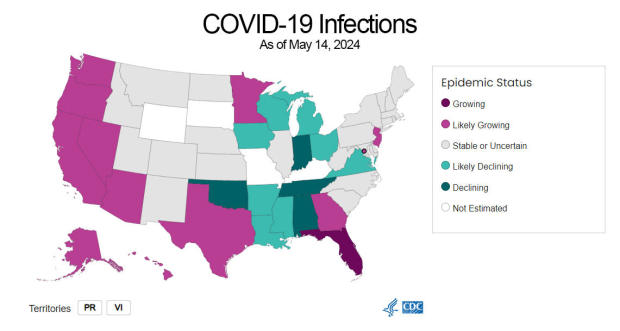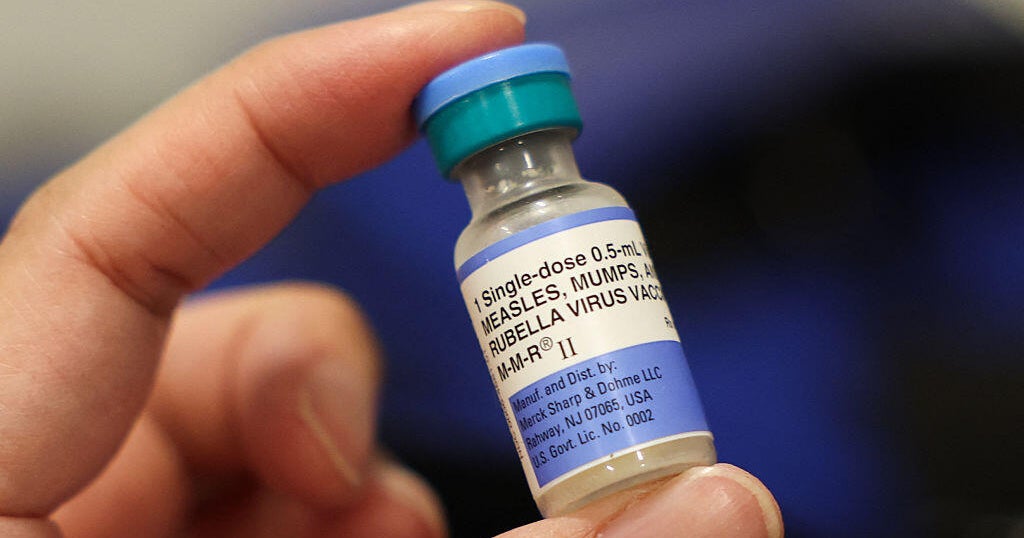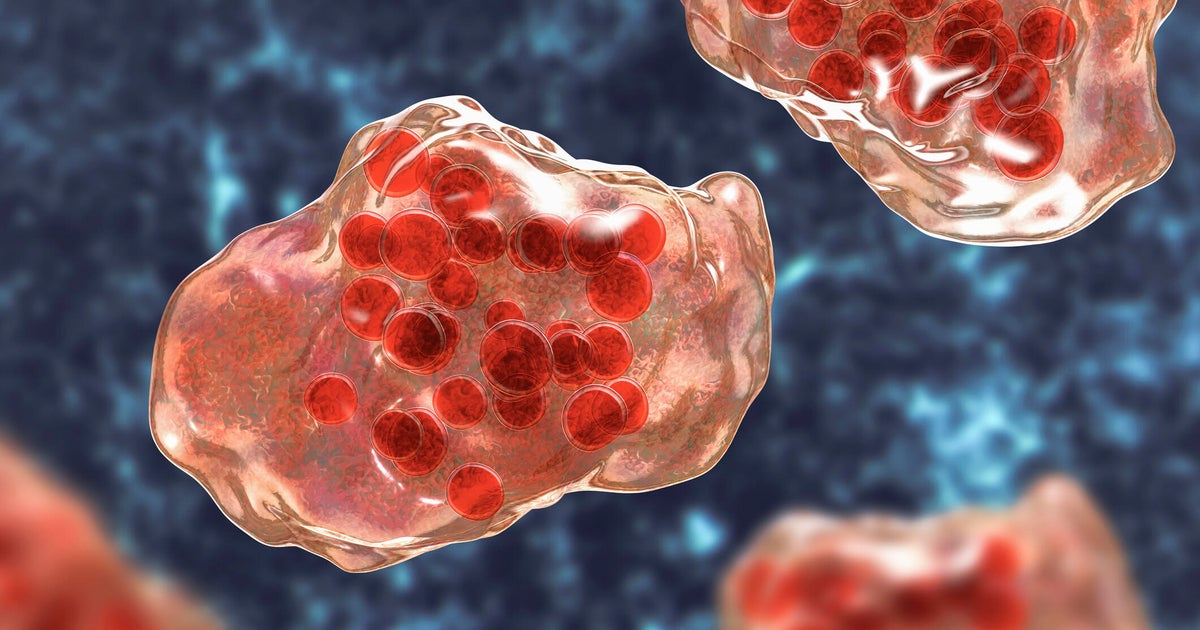COVID "likely growing" in D.C. and 12 states, CDC estimates
COVID-19 infections are now likely growing in at least 12 states and the District of Columbia, the Centers for Disease Control and Prevention estimated Friday, as health authorities are watching for signs the virus might be starting to accelerate again after a springtime lull.
Based on data analyzed by the agency from emergency department visits, CDC modeling suggests COVID-19 infections are increasing in Alaska, Arizona, California, Washington D.C., Florida, Georgia, Hawaii, Minnesota, Nevada, New Jersey, Oregon, Texas and Washington state.
The uptick comes as nearly all parts of the country remain at "low" or "minimal" levels of so-called "respiratory illness activity" under the CDC's benchmarks, similar to previous years' slowdowns in COVID-19's spread over the spring and early summer.
An average of 0.3% of emergency room patients through May 10 were diagnosed with COVID-19 nationwide, far below last summer's peak at nearly 3% in late August. Reported COVID-19 cases in nursing homes also remain close to record lows nationwide.
Preliminary data from the CDC's COVID-19 wastewater surveillance also estimates that levels of the virus remain "minimal" nationwide, though virus levels appear to be trending up in sewersheds from the West.
The dominant strains of the virus circulating at the moment are known as KP.2 and KP.1.1, informally nicknamed the "FLiRT" variants. Health officials have said the two strains are closely related to the JN.1 variant from this past winter's wave, apart from two minor changes that might be enabling them to spread.
A CDC spokesperson said on May 10 that the agency does not think the variants are "causing an increase in infections as transmission of SARS-CoV-2 is low."
"Based on current data there are no indicators that KP.2 would cause more severe illness than other strains. CDC will continue to monitor community transmission of the virus and how vaccines perform against this strain," the spokesperson had said.








